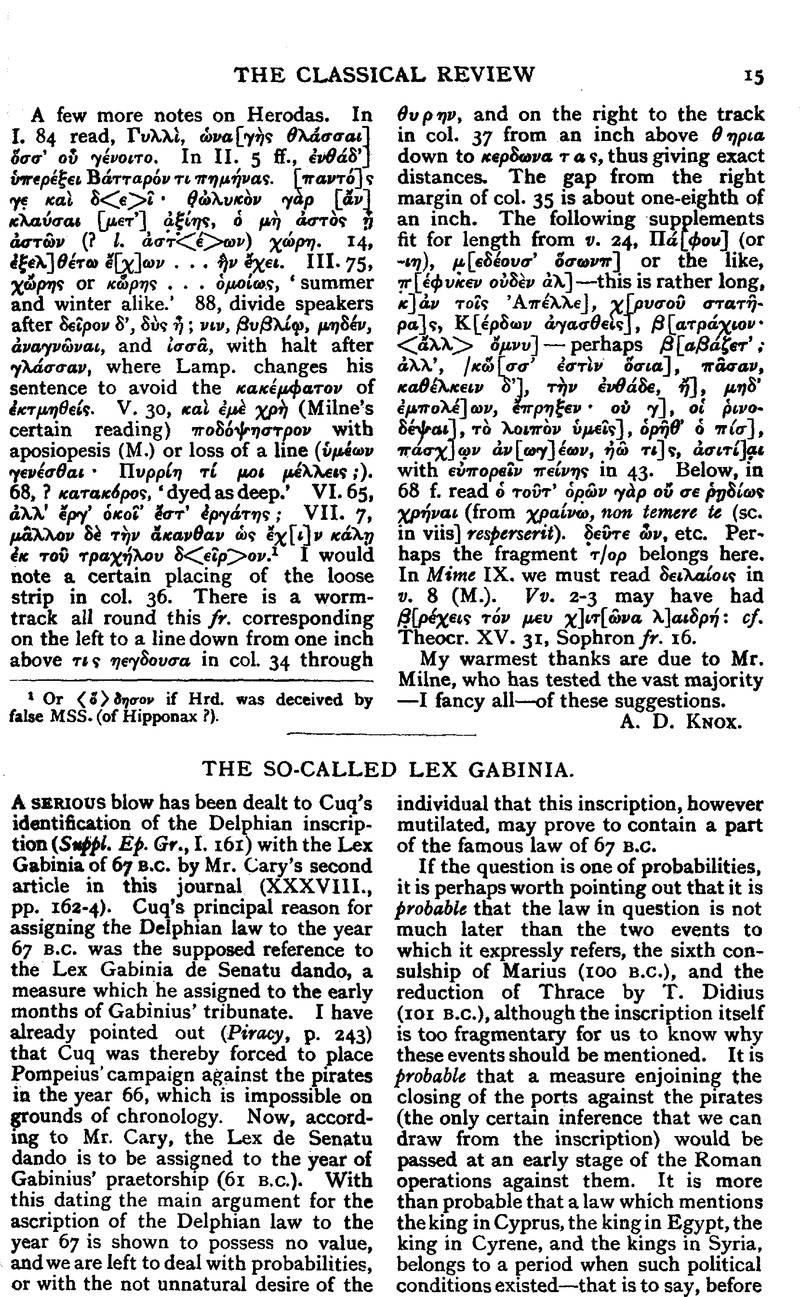No CrossRef data available.
Published online by Cambridge University Press: 27 October 2009

1 Sallust, frag. ii. 43, ed. Maurenbrecher. See Piracy, p. 245.
2 Diod. Sic., xx. 4.
3 Dittenberger, Syll.3, 750.
4 My attention was drawn to these papers by M. Colin.
5 For the bearing of βασιλείς τoνς τοὐς ⋯ν Συρίαι βασιλ∈ὑο[τας on the year 67 see Piracy, p. 246.
6 I am unable to accept Mr. Cary's view that lines 23 ff. of the inscription refer to officials created κατά τoντoν [νόμoν], a ‘special set of magistrates appointed ad hoc.’ The somewhat fragmentary Greek …![]()
![]()
![]() scarcely warrants such a view. With regard to his view that ‘an inscription which mentions Romani and Latini, but no socii Italici, must be dated—not before, but after 90–89 B.C.,’ one naturally asks who were the
scarcely warrants such a view. With regard to his view that ‘an inscription which mentions Romani and Latini, but no socii Italici, must be dated—not before, but after 90–89 B.C.,’ one naturally asks who were the ![]() after 90–89. Scarcely the Transpadanes.
after 90–89. Scarcely the Transpadanes.
7 Journal des Savants, 1906, p. 367.
To send this article to your Kindle, first ensure no-reply@cambridge.org is added to your Approved Personal Document E-mail List under your Personal Document Settings on the Manage Your Content and Devices page of your Amazon account. Then enter the ‘name’ part of your Kindle email address below. Find out more about sending to your Kindle. Find out more about saving to your Kindle.
Note you can select to save to either the @free.kindle.com or @kindle.com variations. ‘@free.kindle.com’ emails are free but can only be saved to your device when it is connected to wi-fi. ‘@kindle.com’ emails can be delivered even when you are not connected to wi-fi, but note that service fees apply.
Find out more about the Kindle Personal Document Service.
To save this article to your Dropbox account, please select one or more formats and confirm that you agree to abide by our usage policies. If this is the first time you used this feature, you will be asked to authorise Cambridge Core to connect with your Dropbox account. Find out more about saving content to Dropbox.
To save this article to your Google Drive account, please select one or more formats and confirm that you agree to abide by our usage policies. If this is the first time you used this feature, you will be asked to authorise Cambridge Core to connect with your Google Drive account. Find out more about saving content to Google Drive.